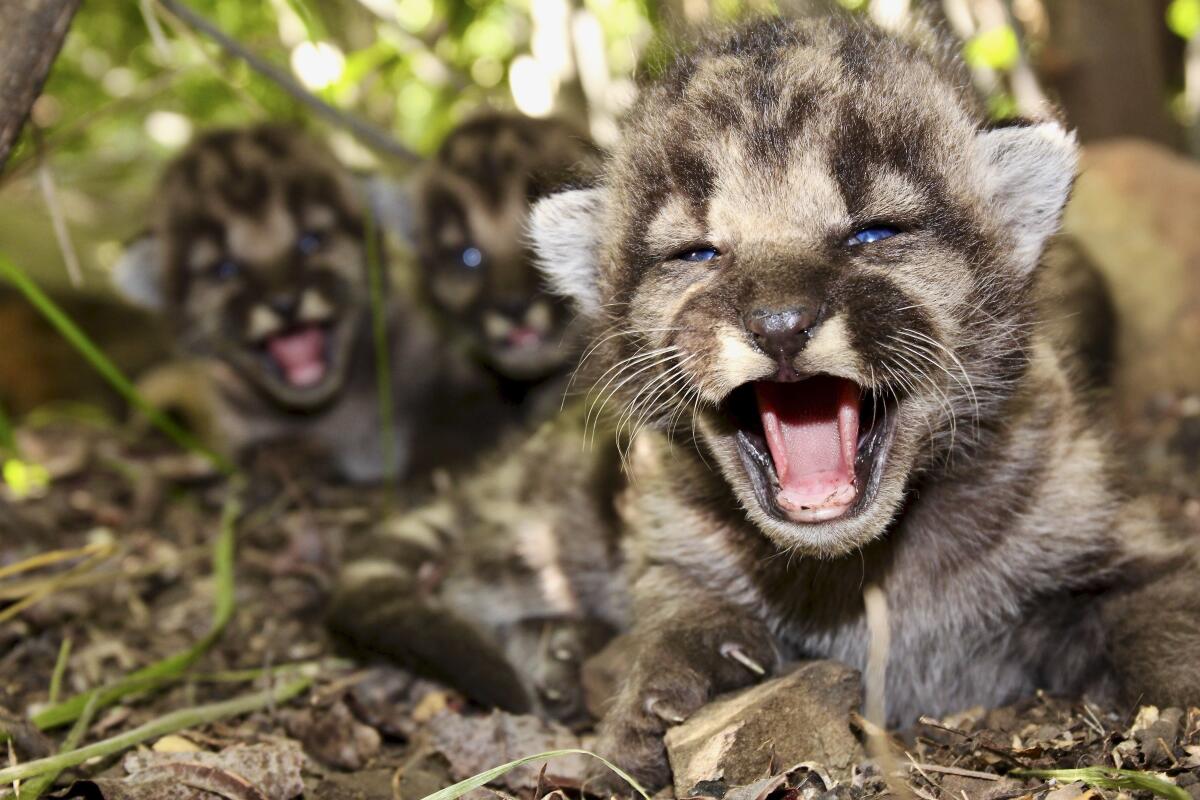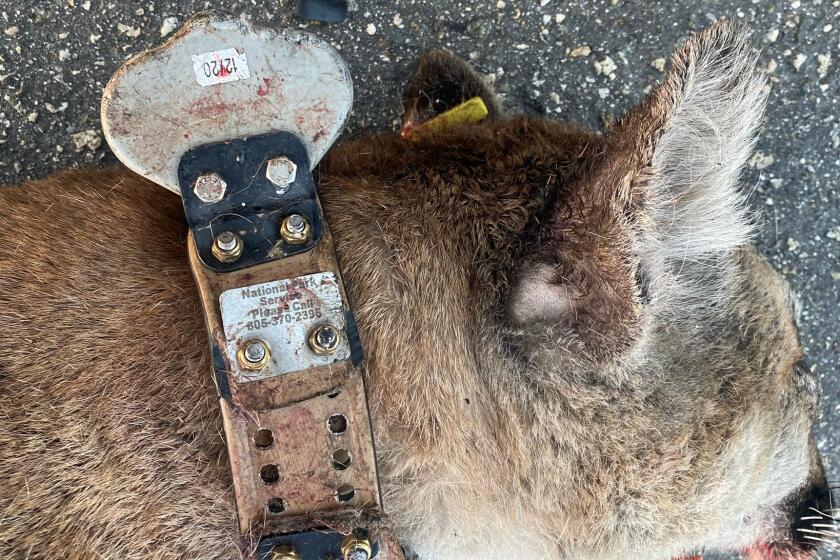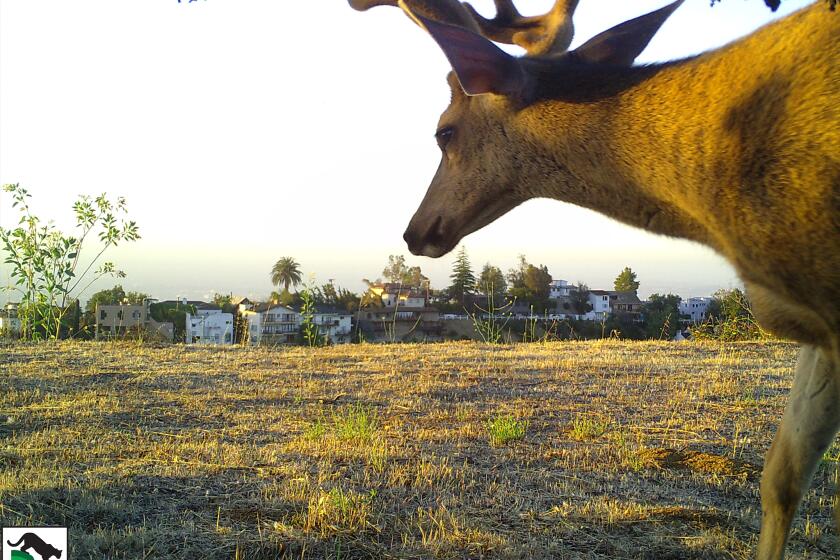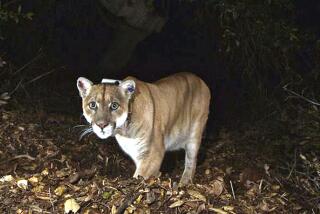Editorial: Cars, poisons are killing California’s cougars. Time for stronger protections

- Share via
For those wondering how many mountain lions have been slaughtered on California’s roads recently, a new study has an answer: more than 500 in the last eight years. And those are just the vehicle strikes that were reported and confirmed. Others, like Los Angeles’ recently departed P-22, may have been hit and limped off, their injuries contributing to their death later.
Meanwhile, rodenticides continue to be a threat to the health of big cats that can be sickened or even killed when they eat animals that ingested the poison.
Mountain lions may be apex predators, but they are also vulnerable to a variety of environmental threats, most of them man-made: They have to dodge cars and trucks just to get across a road to seek a mate or food in new territory — and may eat some animal that ingested rat poison from a bait station put out by people.
The report from the UC Davis Road Ecology Center found that the number of cats killed in vehicle strikes has been trending upward, though it dipped during the pandemic years: For example, 79 were killed in 2019 and 74 in 2022, with the number falling to 53 in 2020 and 56 in 2021. Setting aside the pandemic years, the trend is downward, says Fraser Shilling, the director of the center. But that doesn’t necessarily signify less traffic, he says, adding, “usually when road kills trend downward it’s because there is less wildlife.” And these numbers are probably an undercount, since not every vehicle strike will be reported.
Mountain lions keep getting killed on the roads. California must do more to build safer crossings for animals across busy freeways and highways.
The California Department of Fish and Wildlife is expected to release a mountain lion population assessment later this year. Although California’s cougars are not endangered everywhere in the state, populations in Central and Southern California are so genetically inbred and isolated that their numbers could be dwindling, according to scientists. We hope the state’s Fish and Game Commission will vote this year to list mountain lions in Central and Southern California as either endangered or threatened to give them the added protection they need to survive the encroachment of development and traffic into their habitats.
If they are listed, new construction in those areas would have to minimize impacts, such as making sure the project doesn’t block mountain lion corridors, the paths they take to look for food or mates. Assembly Bill 2344, the Safe Roads and Wildlife Protection Act, which was passed into law last year, requires new transportation projects in roadkill hot spots to find ways to make it safer for wildlife or fix a spot that is dangerous to cross. A proposed wildlife district ordinance in the city of Los Angeles has yet to be voted on by the City Council. It would provide some habitat protection for lions among other wildlife.
A state-of-the-art wildlife crossing is already under construction at Liberty Canyon on the 101 Freeway. But if lions are listed as endangered or threatened, the state could prioritize wildlife crossings on existing roads and highways that have been treacherous for lions to cross.
A proposed wildlife ordinance for L.A. is just what animal — and humans — need.
Rat poison continues to be a threat to mountain lions despite a recent law that put a moratorium on the use of toxic second-generation anticoagulant rodenticides except for agriculture or to protect public health starting in 2021. Ironically, one acceptable use is the control of rodents where they harm threatened or endangered species. Two mountain lion kittens that died in late 2021 after being found near a Thousand Oaks office complex had rat poison in their systems. P-65, a collared mountain lion in the National Park Service study, died last year of mange and was found to have a cocktail of first- and second-generation rat poison in her system.
Regulators are currently reevaluating the effects of the moratorium. If they take any further action, it should be to tighten restrictions. Lions are still falling victim to these poisons, so now is not the time to relax any rules on these rodenticides.
On Saturday, thousands of people turned out for a memorial at the Greek Theatre to honor P-22, who was euthanized late last year after he was discovered to be suffering from a variety of ailments as well as injuries from a probable car strike. Clearly, Angelenos care about the fate of the cougars living in their midst. As we build into their habitats and hem them in with roads, we have to find ways to protect them. Otherwise they will eventually vanish.
More to Read
A cure for the common opinion
Get thought-provoking perspectives with our weekly newsletter.
You may occasionally receive promotional content from the Los Angeles Times.












